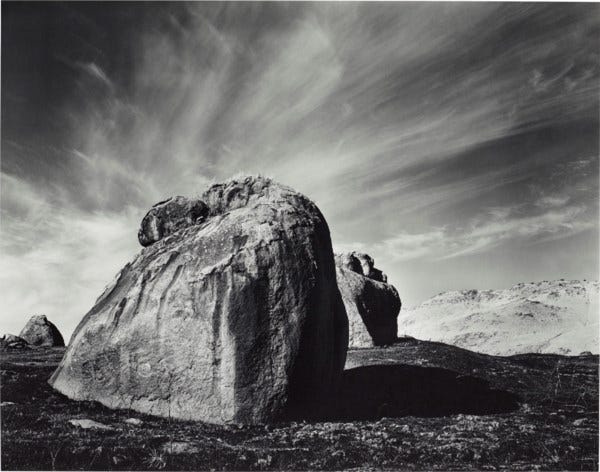Thoughts of the day
After watching this year’s Oscar winner, Nomadland, I began to look more into how the film came to be. I described it to a friend as a film about moving on, through the constant act of moving, although sometimes moving on has a lot to do with standing still and confronting the loss that we may be running away from.
Through its layers of themes, Nomadland is also an homage to nature and its engulfing vastness, that can be both welcoming, a temporary home to the nomads, but also a powerful force, bigger than they can ever be. “You can die out here,” a character says in a memorable moment. The line is not spoken as a threat, or an overly dramatic expression of fear, but just as a fact.
Through my own exploration, I came across Edward Abbey, a park ranger in the late 1950s. During that time he began to record his experiences and thoughts, which culminated in his book Desert Solitaire, and which also inspired the director of Nomadland, Chloé Zhao.
Abbey captures the smallness of man against nature, and the paradoxical reassurance that this provides, in the following lines, that verge on the sublime:
“Men come and go, cities rise and fall, whole civilizations appear and disappear—the earth remains, slightly modified. The earth remains, and the heartbreaking beauty where there are no hearts to break... I sometimes choose to think, no doubt perversely, that man is a dream, thought an illusion, and only rock is real. Rock and sun.”
This simple truth, that we can all disappear so easily, as many others have done before us, provides a jarring sense of perspective. We are too little and insignificant. Many of our troubles are not only universal but also magnified because we are too close to them. The concept of status vanishes against the backdrop of an endless sky.



